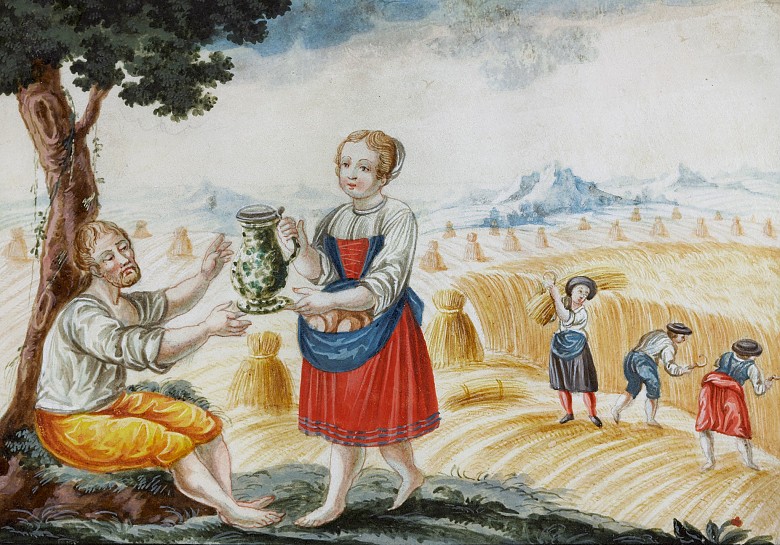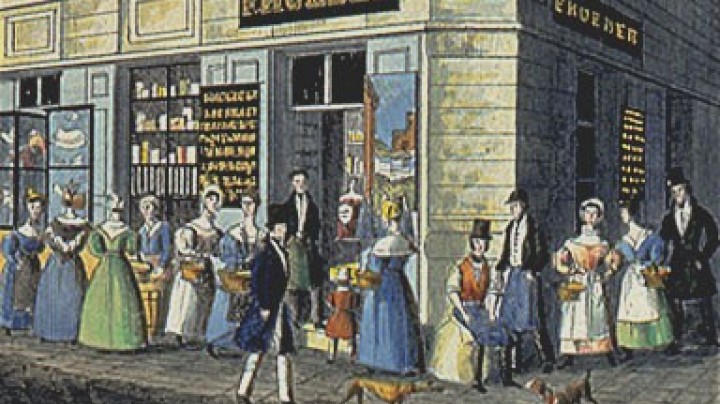Speculation in foodstuffs in the early modern period – The links between weather, manorial estates and grai...
For the majority of the population failed harvests meant hunger. Landowners, aided and abetted by the rulers, knew how to turn them to their advantage.
Cereals and bread were the most important staple foods in the early modern period and could not be replaced by other foodstuffs. In times of crisis it was not unusual for most people to have to spend their entire income on bread.
There was one such period in the second half of the sixteenth century, when very cold and snowy winters followed by cool and rainy spells in spring, summer and autumn meant that the harvest failed. As a result grain prices rose dramatically: between 1563 and 1571 they rose by more than 600 per cent in Vienna. In 1570 the same sum of money bought a journeyman mason just fourteen per cent of the amount of rye he had got for it in 1565. The consequence of such high prices was that real incomes and purchasing power fell, leading to a decline in sales of commercial products and an increase in unemployment. Contemporary reports refer to widespread hunger among the population.
Such price increases were, however, not only the result of freak weather conditions; the behaviour of both secular and ecclesiastical landowners also contributed significantly to the increase in grain prices. The supply of cereals by peasant farmers, who were only permitted to sell their produce at certain markets and fairs, dried up more or less completely. This was because they needed the grain they had harvested for their own consumption or for use as seed. They also had to bear the burden of taxes imposed by landowners, who were not necessarily affected adversely when the harvest failed. Very often they hoarded grain in their storehouses, so that they could sell it to non-local traders at a high price. Unlike their peasants, they were allowed to sell the grain which they produced or received as tithe directly on their estates, in presbyteries and in monasteries.














